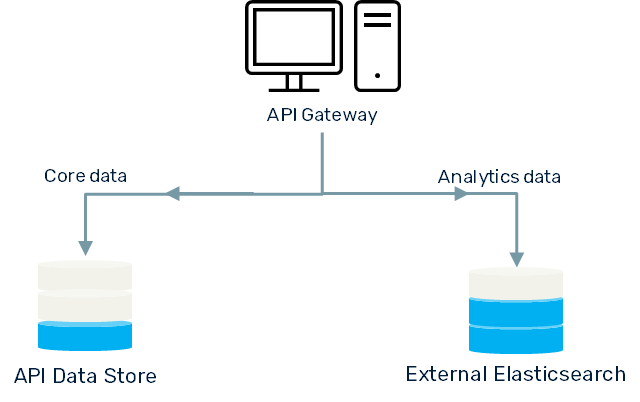Data Separation
API Gateway stores the data in API Data Store by default. It includes the core data and analytics data. These two data types are different in the following ways:
Core data | Analytics data |
Includes APIs and assets that are critical to keep business running. | Includes the API analytics data |
Requires frequent backup. For example, 15 minutes. | Can be backed up in lesser frequent intervals. For example, 24 hours. |
Requires lesser storage space than the analytics data. | Requires huge storage space. |
Hence, if you are managing large transactions volume, Software AG recommends that you save the core data and analytics data separately.
To separate the core data from analytics data, you can configure an external Elasticsearch and save the analytics data.
When you save the analytics data in an external Elasticsearch instance, the data is not reflected in the API Gateway Dashboard. You can configure a separate Kibana dashboard for your external Elasticsearch destination.
If you want to use the Kibana embedded with API Gateway to view the analytics data, open the kibana.yml file located at C:\API Gateway instance\profiles\IS_default\apigateway\dashboard\config and specify the external Elasticsearch host and port details, which the Kibana has to connect to, as follows:
# The Elasticsearch instance to use for all your queries.
elasticsearch.hosts: "http://host_name:port"
Data Separation Benefits
The main benefit of data separation is that the API Gateway core data is lesser in size when compared to the analytics data. The data stored in API Data Store remains light and

Performance of the application improves.

Data housekeeping and data backup processes become faster and simpler.

